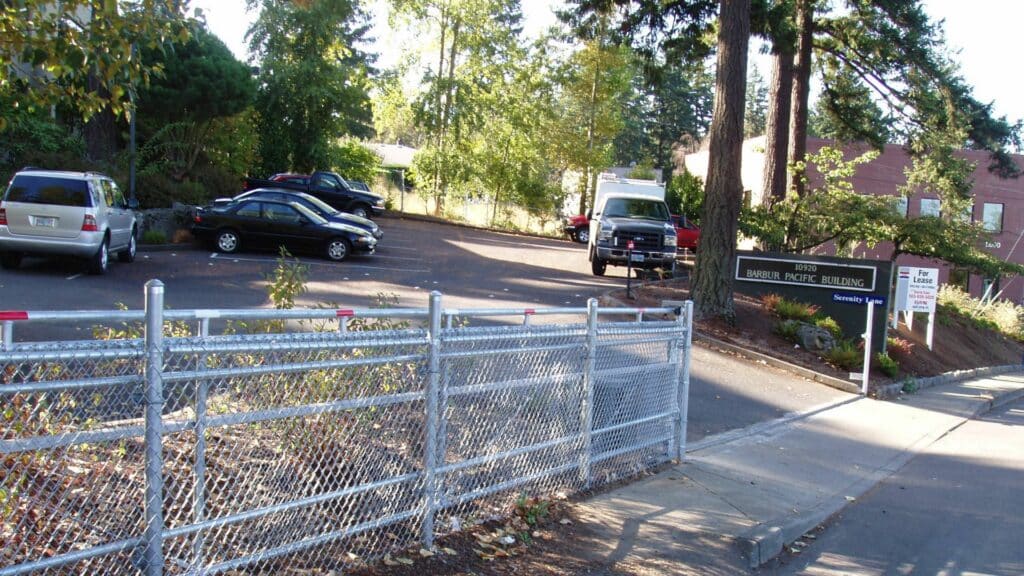When planning a commercial fence installation, many property owners focus on aesthetics, durability, and budget—yet overlook one critical factor: legal compliance. Ignoring local regulations can result in serious consequences, from zoning violations and property line disputes to hefty fines or even forced fence removal. Each municipality enforces its own set of rules regarding permits, fence height, materials, and placement. What may seem like a simple upgrade can quickly turn into a legal headache without the right preparation. That’s why it’s essential to understand the regulatory landscape before any work begins. Classic Fences & Decks specializes in navigating these legal complexities, ensuring every commercial fence installation is not only functional and attractive but fully compliant with local laws.
Navigating the Legal Process for Fence Compliance
Before installing any commercial fencing, the most important step is understanding your local codes and securing the proper permits. Here’s a breakdown of how the process typically works:
Step 1: Conduct a Property Survey
- Why it matters: A professional survey confirms exact property boundaries, helping you avoid encroaching on neighboring land.
- What can go wrong: Installing a fence just a few inches onto adjacent property can trigger legal disputes or force you to remove the structure entirely.
Step 2: Check Local Zoning Laws
- Height limits: Most municipalities regulate how tall fences can be, especially near sidewalks, driveways, or roads.
- Material restrictions: Certain materials may be restricted for aesthetic or safety reasons. For example, barbed wire or electric fencing often has limitations in commercial zones.
Step 3: Apply for Necessary Permits
- Avoiding fines: Commercial fence installation usually necessitates permits, so skipping this step could result in penalties or forced removal.
- Timeframe: The permitting process can take several days to weeks—plan ahead to avoid project delays.
Step 4: Coordinate with Utility Companies
- Call before you dig: Always contact utility providers to locate underground lines. Damaging utilities during installation can cause service outages and legal trouble.
Why Legal Fencing Matters for Your Business
A well-installed fence does more than mark boundaries—it protects your investment, secures your property, and demonstrates your business’s commitment to professionalism. Here are a few benefits of doing it right the first time:
- Legal compliance avoids fines and legal battles with neighbors or local authorities.
- Peace of mind knowing your installation is up to code.
- Improved property value thanks to professional and well-planned fencing.
- Insurance coverage often depends on legal compliance—an unpermitted fence might void coverage in case of a claim.
- Reputation protection: Legal hiccups can hurt your business image. A smooth install shows customers and clients you run a responsible operation.
At Classic Fences & Decks, we’ve worked with local city codes across Oregon, making us well-versed in navigating permit requirements and zoning laws for commercial properties.
Things to Watch Out For During a Commercial Fence Installation
Even when you’re on top of permits and regulations, some challenges still catch property owners off guard. Here’s what you should watch out for:
Neighbor Disputes
- Always inform neighboring businesses before installation.
- Keep a copy of your property survey to prevent boundary disagreements.
Poor Contractor Communication
- Work with licensed professionals who understand commercial fencing—not just residential.
- Make sure your contractor provides documentation of permitting, insurance, and inspections.
Ignoring Accessibility Laws
- ADA (Americans with Disabilities Act) guidelines might apply in some commercial zones.
- Ensure fence designs don’t block access or interfere with required entrances and exits.
Outdated or Missing Documentation
- Keep records of all permits, property surveys, and contracts.
- Some cities require annual renewals or inspections for commercial fencing.
Don’t Fall for These Fence Installation Myths
“It’s Just a Fence—You Don’t Need a Permit”
False. In commercial zones, fences almost always require some form of city approval.
“You Can Build Right Up to the Property Line”
Not necessarily. Setback rules often require fences to be placed a few feet within your property line.
“Any Contractor Can Handle It”
Commercial fencing is more complex than residential. Hiring a team like Classic Fences & Decks, experienced in commercial fence installation, ensures you’re getting qualified service tailored to local laws.
Contact Us Today!
Avoiding legal issues with your business fencing project doesn’t have to be overwhelming. At Classic Fences & Decks, we handle everything from surveys and permitting to expert installation—so you can focus on running your business, not worrying about red tape.
If you’re planning a project and want a team that’s experienced, reliable, and fully compliant with local regulations, give us a call at (503) 663-2998. Let’s make your property secure, professional, and fully up to code.
Frequently Asked Questions: Answers to Common Questions
How long does the commercial fence permitting process take?
It varies by location, but expect 1–3 weeks. Planning ahead is key to staying on schedule.
What happens if I install a fence without a permit?
You may face fines, be ordered to take it down, or have future permit applications denied.
Can I use residential-grade materials for a commercial fence?
Not usually. Commercial fences often require higher-grade materials for durability and security, and some cities have codes specific to business properties.



